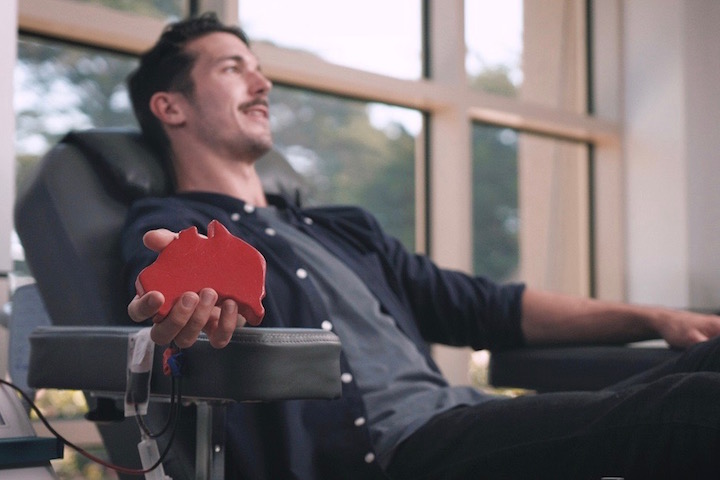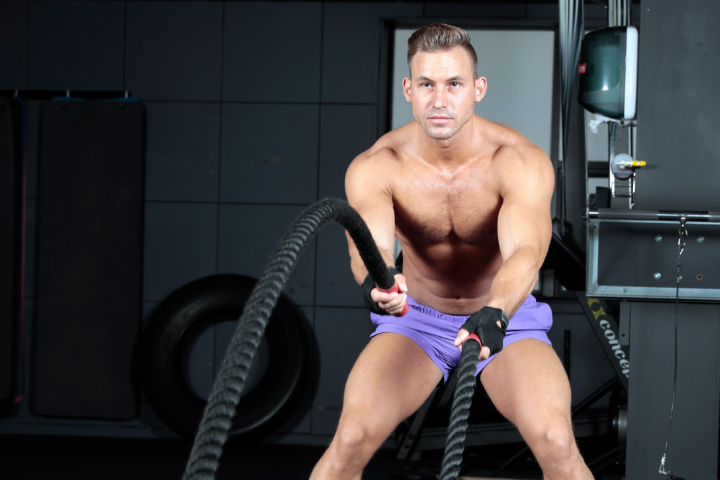
Help recognise depression
Good Health
with DR GEORGE FORGAN-SMITH
I want to touch on a very important topic — depression. Australian statistics show that one in six men will suffer with depression and recent studies show that these rates are even higher among gay men.
Combine this with the statistic that men have over three times the risk of lethal suicide and you can understand my passion for sharing this information.
Depression can be a silent disease, slowly creeping up, taking away self-esteem, enjoyment of life and energy. When depression hits men it can also lead to increased violence and aggression, substance use and social isolation that makes the disease worse.
While the good news is that there are very effective treatments for depression, without detection we are not able to start the road to recovery. I want to cover some of the key features that indicate a person may be suffering with depression.
What are the symptoms of depression? Here are some of the major features that are common in people living with depression. Not everyone will have all the features, however, many will have at least two of three.
We all have our up days and down days but if you notice you or a loved one has been suffering any of the following for more than two weeks, this may be a sign of depression.
Disturbed sleep
One of the first indicators of depression is the disruption of sleep patterns. Two common disturbed sleep patterns include difficulty falling asleep and waking very early in the morning. Some people also have an increase in the need for sleep although they still report that, despite sleeping many hours, they do not feel refreshed.
Loss of interests
Many people with depression report that they are just not enjoying life as much as they used to.
Feelings of guilt
Depression can lead to feelings of worthlessness and guilt. Extreme depression can lead to persecutory beliefs that the sufferer ‘is a bad person’ despite there being no attributable causes.
Poor energy
People living with depression frequently report feeling tired all the time, worn out and ‘over it’. Energy levels can drop to such low levels that even simple tasks such as showering and cooking meals are too big a burden.
Reduced concentration
Depression can greatly affect the ability to think and concentrate. People with depression can sometimes appear as vague or forgetful. Their ability to keep track of even the simplest tasks becomes harder.
Anxiety and agitation
Excessive or exaggerated worry is a common feature. Some people can become more irritable and ‘touchy’ which can sometimes lead to overt aggression. Some people with depression may find even the most minor comment or personal criticism to be a personal blow that can be very disturbing.
Psycho-motor retardation
Often a difficult one to explain, psycho-motor retardation is when the body and the mind slow. Thought processes take much longer than normal, people take longer to complete tasks.
Feelings of worthlessness
One of the most crippling symptoms of depression is the feeling of worthlessness. Some people are so sad that they are not able to see that they are important members of their families and community.
At the most extreme, people with severe depression can feel life is not worth living and may even contemplate suicide.
Suicidality is a psychiatric emergency and if anyone tells you that they are contemplating ending their life this is to be taken seriously and help is to be sought immediately.
If you or someone you care for is feeling suicidal, the best action is to either call an ambulance or, if practical, to head to either the hospital or your family doctor immediately.
If after reading these common symptoms, you feel you or a loved one may be living with depression I urge you to get help straightaway.
A good source of help can be your family doctor, community health service or local hospital.
If you are in Australia and would like to talk with someone by phone some good numbers include: Lifeline 13 11 14; Men’s Line Australia 1300 78 99 78; The Gay and Lesbian Counselling Service 1800 184 527; Melbourne 03 9827 8544; Sydney 02 8594 9596; Brisbane 07 3017 1717
INFO: For an introduction to mental health first aid visit http://thehealthybear.com.au









